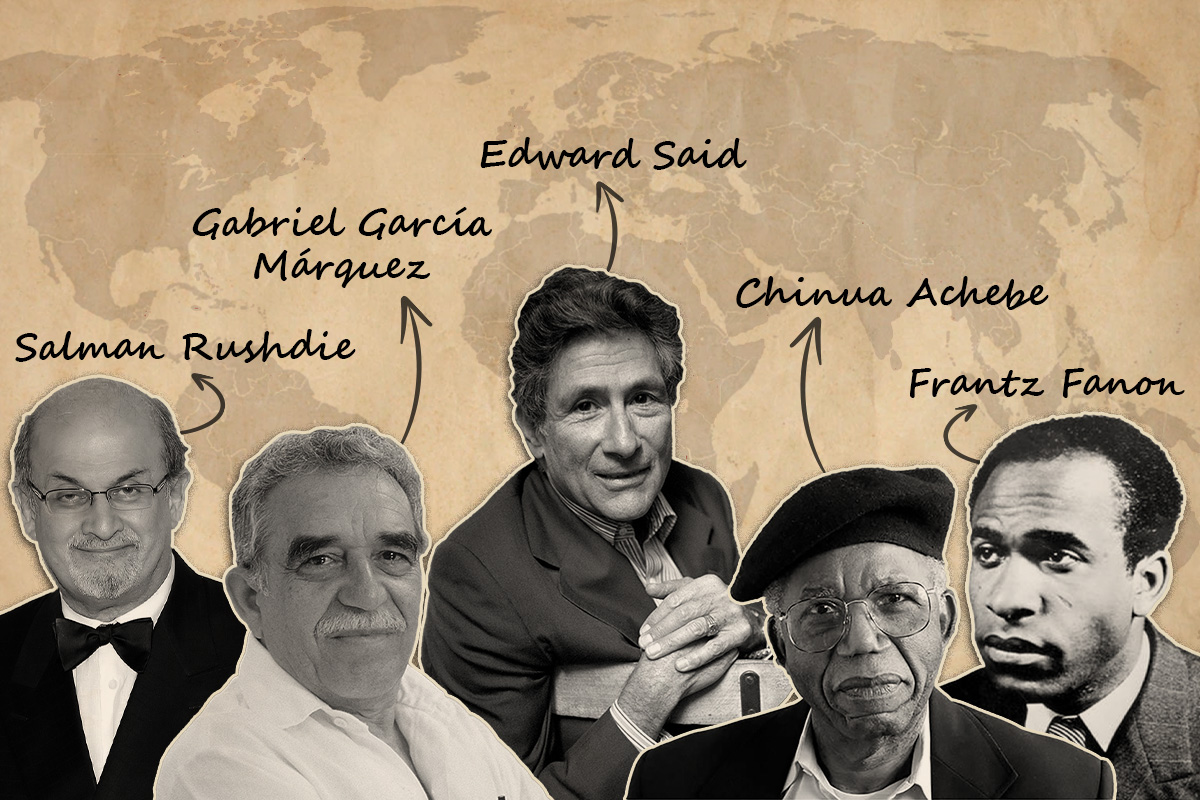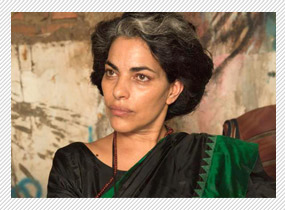Greetings,
After completing the unit on Postcolonialism, we moved on to our next unit and have now completed the study of Salman Rushdie's groundbreaking, Booker Prize-winning novel "Midnight's Children". This novel is particularly important because of its new Postcolonial insights, as it explores the ideas of hybridity, chutnification, magic realism and historical metafiction. In this blog post, you'll find some points to ponder upon, which have been assigned by Dr. Dilip Barad.
Role of 'English' in the Novel
"the dominance asserted and maintained by the establishment and continuous reconstitution of structural and cultural inequalities between English and other languages."
Today, English language is commonly cited for linguistic imperialism. Nowadays it is important for everyone to know and learn English language to have good opportunities in market jobs. Those people who knows this language are seen as intellectual and superior than others, especially in India and Eastern countries. Most of the countries from East were once the colonies of Britishers, and during that time English people imposed their language and culture upon the Indians. In return, to impress their master Indians have started to learn, speak and write English language. This way English language holds more importance today not only in India but globally.
In 'Midnight’s Children', Salman Rushdie's character Saleem Sinai used English in a way that was both remarkable and recognizable to Indians. After years of struggling with this foreign language out of respect for the legacy of Thomas Macaulay, it had finally become something that belonged to them. novelists such as Mulk Raj Anand, R.K. Narayan and Raja Rao were those who made a conscious decision to write in English as if it were an Indian language.(Narayan)
According to Peter Barry, there are three stages in postcolonial discourse, and those are adopt, adapt and adept respectively. In the first stage colonized tries to please their master by adopting their way of living. In the second stage colonized people begin to modify and adapt the cultural and linguistic practices they have adopted from the colonizers. Indian English literature's Adept phase was started with the publication of 'Midnight's Children' and famous preface of Raja Rao's 'Kanthapura'. In this stage colonized people finally master colonizers ways of doing thing and become rebellious in their nature towards their masters.
The question of language was central to the making of Midnight’s Children. However, writing in classical English felt wrong, like a misrepresentation of the rich linguistic environment of the book’s setting. In the end I used fewer non-English words than I originally intended. Sentence structure, the flow and rhythm of the language, ended up being more useful, I thought, in my quest to write in an English that wasn’t owned by the English (Rushdie)
He took the inspiration from American writer Philip Roth, who used such kind of hybridity of language and mixing of words from various languages. Rushdie thought that the using of proper English language would not give the justice to Indian English novel.
Metaphor of ‘Bulldozer’ used in Midnight’s Children
The reference to "bulldozers" is a symbol of the harsh and forceful way the government tries to modernize society in Salman Rushdie's 'Midnight's Children'. The bulldozers represent the destruction of poor or marginalized communities in the name of progress during the years of emergency (1975-1977). They are being used to clear out the "ghetto of the magicians," showing how the state is willing to erase people's homes and cultures to make way for what they consider development.
This connects to a larger theme in the novel, where modernization and nation-building often come at the expense of ordinary people, especially those who are already vulnerable, poor and helpless. The bulldozer here is a symbol of how power can destroy people's lives in the name of progress.
Postcolonial Voices in Midnight’s Children
"Midnight’s Children" offers critical insights and new perspectives within postcolonial studies. The novel predominantly explores the hybridization of identity in the cases of both central figures, Saleem and Shiva, while also delving into linguistic experimentation and historiographic metafiction.
In many ways, Rushdie breaks from traditional postcolonial representations. The novel focuses on the indigenous character Saleem's history, with the entire narrative revolving around him. In contrast, the traditional portrayal of postcolonialism often involves numerous Western characters and a continuous conflict between the colonized and colonizers, as seen in 'A Passage to India' by E.M. Forster, where multiple foreign characters are central. However, in 'Midnight’s Children,' the only prominent Western character is William Methwold. This way, Rushdie subverts Edward Said's Orientalist framework.
Barad, Dilip. “Erasure and Oppression: The Bulldozer as a Tool of Authoritarianism in Midnight's Children.” researchgate.net, ResearchGate, https://www.researchgate.net/publication/383410297_Erasure_and_Oppression_The_Bulldozer_as_a_Toolof_Authoritarianism_in_Midnight%27s_Children. Accessed 7 September 2024.
Narayan, Manjula. “How Midnight's Children shaped Indian writing in English.” Hindustan Times, 14 April 2021, https://www.hindustantimes.com/books/how-midnight-s-children-shaped-indian-writing-in-english-101618288240932.html. Accessed 26 August 2024.
Nordquist, Richard. “Definition and Examples of Linguistic Imperialism.” ThoughtCo, 31 July 2019, https://www.thoughtco.com/what-is-linguistic-imperialism-1691126. Accessed 25 August 2024.
Rushdie, Salman. “Salman Rushdie on Midnight's Children at 40: 'India is no longer the country of this novel.'” The Guardian, 3 April 2021, https://www.theguardian.com/books/2021/apr/03/salman-rushdie-on-midnights-children-at-40-india-is-no-longer-the-country-of-this-novel. Accessed 26 August 2024.












